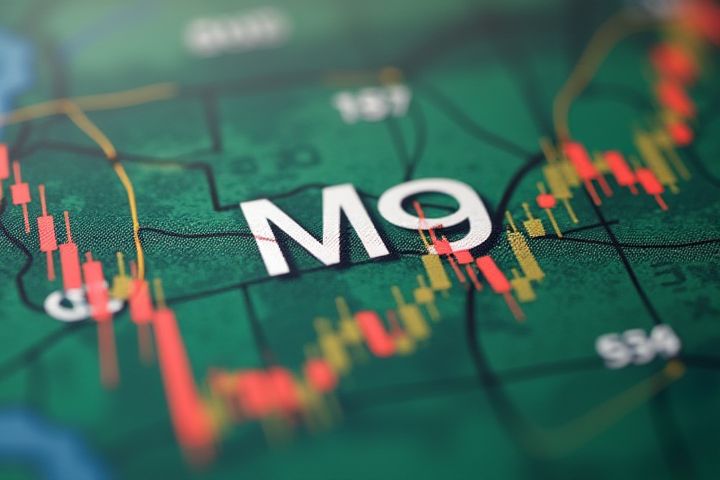
The Nigerian stock market, officially known as the Nigerian Exchange Group (NGX), serves as a crucial platform for securities trading in Nigeria. It features a diverse range of investment options, including equities, bonds, and derivatives, enabling investors to diversify their portfolios. The NGX has attracted both local and foreign investors due to its potential for high returns, particularly in sectors like banking, telecommunications, and consumer goods. Regulatory oversight by the Securities and Exchange Commission ensures transparency and investor protection, fostering confidence in the market. By participating in the Nigerian stock market, you can take advantage of Nigeria's emerging economy and contribute to its growth.
Nigerian Stock Exchange
The Nigerian Stock Exchange (NSE) serves as the primary platform for trading securities in Nigeria, providing investors with opportunities to buy and sell shares of publicly listed companies. With its diverse range of sectors, including banking, telecommunications, and consumer goods, the NSE attracts both local and foreign investors seeking to capitalize on Nigeria's emerging market potential. The exchange operates under a regulated framework, ensuring transparency and efficiency in transactions, which is vital for maintaining investor confidence. By analyzing market trends and individual stock performances, you can make informed decisions that align with your investment goals in this dynamic financial landscape.
Market Capitalization
The Nigeria Stock Exchange (NSE) is a pivotal platform for trading securities, with a strong emphasis on market capitalization as a key indicator of economic health. Market capitalization, the total market value of a company's outstanding shares, reflects investor confidence and corporate performance within Nigeria's dynamic economy. Prominent sectors, such as banking, oil and gas, and consumer goods, significantly influence the NSE's overall market capitalization, ultimately driving investment decisions. For investors, understanding these trends in market capitalization can provide valuable insights into potential returns and risk management strategies in the Nigerian stock market.
All Share Index
The All Share Index (ASI) is a crucial benchmark for evaluating the performance of the Nigerian stock market, encompassing the entire market capitalization of listed companies. This index provides insights into the overall economic health, reflecting the investment climate and investor sentiment within Nigeria. Companies listed on the Nigerian Exchange (NGX) directly influence the ASI, making it a vital tool for tracking market trends. By observing fluctuations in the ASI, you can gauge potential investment opportunities and market dynamics in Nigeria.
Securities and Exchange Commission
The Nigerian stock market operates under the regulatory oversight of the Securities and Exchange Commission (SEC), ensuring transparency and investor protection. The SEC's pivotal functions include enforcing securities laws, promoting fair trading practices, and fostering a stable investment environment. This regulatory framework enhances market efficiency, attracting both domestic and foreign investors to Nigeria's diverse assets. By familiarizing yourself with the SEC's rules and guidelines, you can make informed investment decisions within this dynamic market landscape.
Dual Listing
The Nigerian stock market increasingly emphasizes dual listing, allowing companies to be listed on both domestic and international exchanges. This strategic move enhances the visibility and marketability of Nigerian firms, attracting foreign investments and broadening their shareholder base. By participating in dual listings, companies can leverage a larger capital pool while benefiting from enhanced credibility and investor trust. As you explore investment opportunities, consider how dual-listed Nigerian companies may offer diversified growth prospects in a dynamic global market.
Naira Exchange Rate
The Nigerian stock market is heavily influenced by the Naira exchange rate, impacting both foreign and local investments. A depreciating Naira often leads to increased inflation and reduced purchasing power, affecting companies' earnings and stock valuations. Investors closely monitor the Central Bank of Nigeria's policies and interventions, which aim to stabilize the currency. Understanding the interplay between currency fluctuations and stock performance is crucial for making informed financial decisions in Nigeria's dynamic economic landscape.
Banking Sector Dominance
The Nigerian stock market is significantly influenced by the banking sector, which stands as a key pillar in the country's economic landscape. Major banks like Access Bank, Zenith Bank, and First Bank dominate market capitalization, driving liquidity and investment interest. Regulatory bodies, such as the Central Bank of Nigeria, implement policies that shape banking operations, affecting overall market stability. As you navigate investment opportunities, understanding these dynamics in the banking sector can enhance your strategic decisions.
Agriculturally Based Listings
The Nigerian stock market increasingly emphasizes agriculturally-based listings, reflecting the nation's commitment to agricultural development and food security. This focus allows investors to participate in sectors such as crop production, agro-processing, and food supply chains, fostering economic growth and job creation. With companies like Okomu Oil Palm Company and Presco PLC leading the way, diverse opportunities arise for investing in sustainable farming practices and value-added agricultural products. By considering these listings, you can contribute to a burgeoning sector that is vital for Nigeria's future economic resilience and stability.
Oil and Gas Influence
The Nigerian stock market is significantly influenced by the oil and gas sector, given that crude oil constitutes the backbone of the country's economy and accounts for a substantial portion of government revenue. Major oil companies like Shell and Total dominate the industry, impacting stock performance and investor sentiment. Fluctuations in global oil prices directly correlate with stock valuations, creating volatility that investors closely monitor. For those engaged in the Nigerian equities market, understanding the dynamics of oil and gas is crucial for making informed investment decisions.
Corporate Governance Regulations
Nigeria's stock market is governed by a robust framework of Corporate Governance Regulations aimed at promoting transparency, accountability, and investor confidence. The Securities and Exchange Commission (SEC) of Nigeria has established guidelines that mandate publicly listed companies to adhere to best practices in management, including equitable treatment of shareholders and rigorous disclosure of financial information. These regulations are designed to mitigate risks related to corporate misconduct and foster sustainable economic growth. By embracing these governance standards, companies can enhance their reputation, attract foreign investments, and ultimately contribute to the stability of Nigeria's financial markets.
